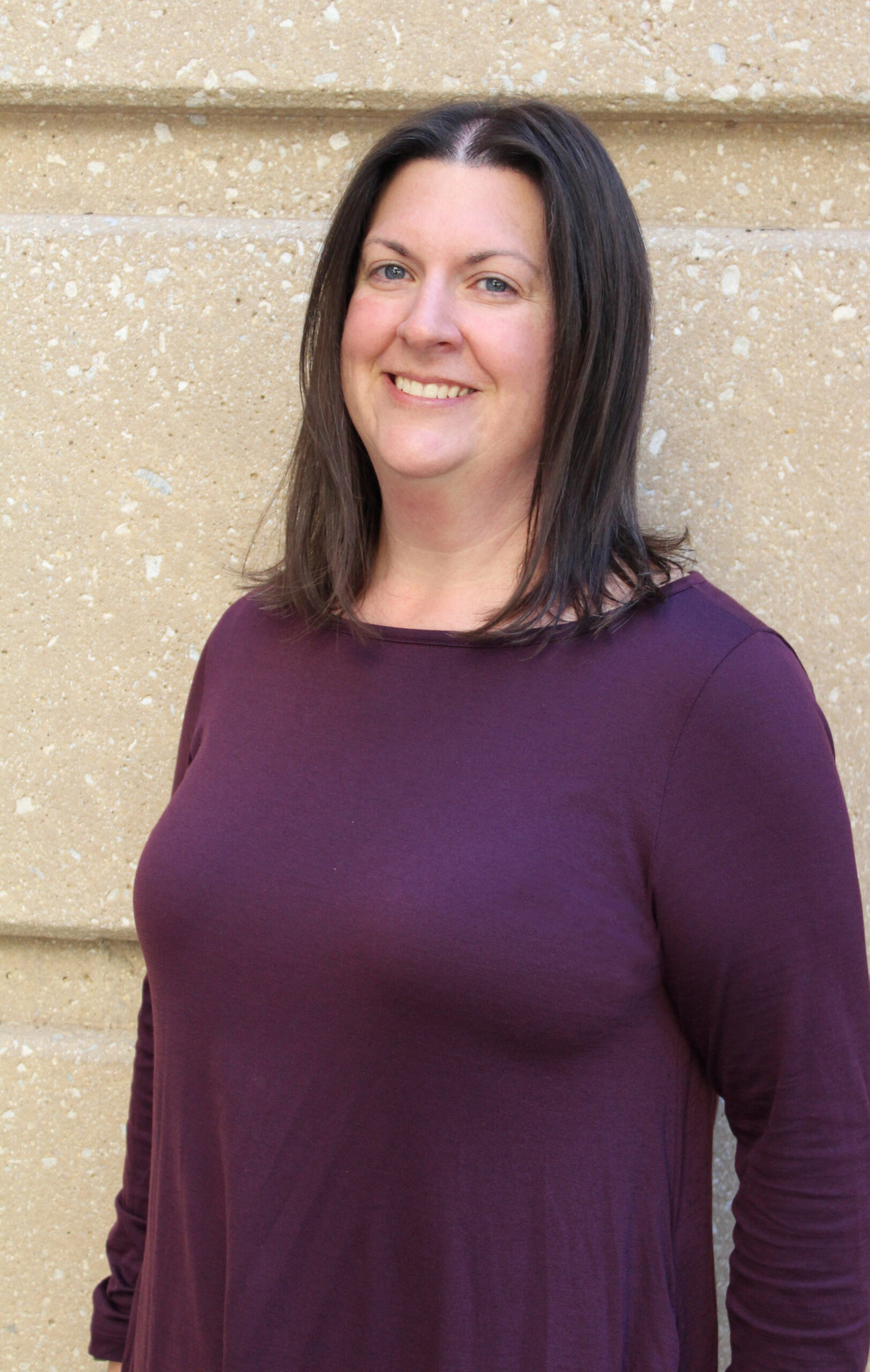Tuesday, October 21, 2025
Trust, compassion, and empathy are all qualities patients want in a physician, and a new grant to UNT Health Fort Worth’s Texas College of Osteopathic Medicine from the American Association of Colleges of Osteopathic Medicine will help train faculty to integrate that into a course for first-year medical students. Mandy Mendez, APRN, MSN, FNP-C, is the course director of TCOM’s Experiential Clinical Learning received the grant from AACOM that will allow her to be trained in the Trust-Based Relational Intervention model next spring and to bring her training to the classroom next fall.
TBRI®, developed by the Karyn Purvis Institute of Child Development at TCU, is an evidence-based model scientifically proven to improve outcomes in individuals who have experienced trauma. It achieves this by emphasizing connection before correction, fostering felt safety, and promoting trust-based engagement.

Photo caption: The University of North Texas Health's Mandy Mendez, course director of TCOM’s Experiential Clinical Learning
“I had some micro-training early this year and thought this might be a great way to introduce our students to this,” Mendez said. “We want this training to help them in clinical experiences in medical school because it will benefit them greatly in the long run.”
By embedding TBRI®, an evidence-based, trauma-informed relational model, Mendez is aiming to profoundly enhance students’ capacity to deliver compassionate, empathetic, and trauma-sensitive care from the very outset of their medical training in their first year.
Mendez is using TCOM’s Class of 2029 as a “controlled group” by measuring their levels of recognition, empathy and compassion as they shadow clinicians throughout the year. Mendez will analyze the results to see how well they recognized different aspects, having received no exposure to TBRI-trained faculty or TBRI themselves. After Mendez receives the training, TCOM’s Class of 2030 will be measured to see the results.
“I want to be trained, then take that training and implement that into the syllabus and curriculum for this class to see if their recognition, compassion, and empathy are affected by a professor who has TBRI training,” Mendez said.
Mendez said the initiative will be evaluated through successful faculty certification, comprehensive student reflection data comparing pre- and post-faculty certification cohorts, and qualitative faculty observations.
While the focus is on first-year students, Mendez sees the value in the course and training for all providers to help change the patient-provider relationship.
“It’s always been an issue, and even from when I first started in 2007, the patient-provider relationship is very different then than it is now,” Mendez said. “A lot of people are much more skeptical, and it’s so we have to be able to convey to them that we are doing this, whatever this happens to be, in a caring way. When people feel that you know where they are coming from and that you want the best for them and their family, they are much more willing to come together to improve their health. Our approach to doing that has to be very different than in the past.”
Mendez hopes to use the data from TCOM’s current first-year class, which will have received no formal training, as the baseline for future groups and perhaps answer questions about why the change occurred.
“I want to be able to know if the data changes, how it changes, and why,” Mendez said. “As the first-year students who will receive the training next year become second and third-year students, does this improve their clinical empathy and compassion? This is a very exciting long-term project, but the data has shown that increasing provider empathy and compassion with their patients decreases physician burnout.”
A recent long-term study published by Dr. John Licciardone, executive director of the Osteopathic Research Center and Regents Professor at UNT Health, demonstrated that strong patient-physician relationships are built on trust and that empathetic care encourages patients to open up, follow treatment plans, and remain engaged in their health.
From UNT Health Newsroom - Community by Steven Bartolotta